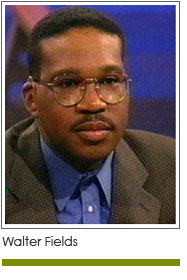 There was a collective gasp on Friday when the Bureau of Labor Statistics released the Employment Situation Summary report for October. The numbers revealed a loss of 240,000 jobs last month and unemployment creeping up to 6.5 percent; both staggering figures and an indication of how deep a hole the country finds itself in during the present economic downturn.
There was a collective gasp on Friday when the Bureau of Labor Statistics released the Employment Situation Summary report for October. The numbers revealed a loss of 240,000 jobs last month and unemployment creeping up to 6.5 percent; both staggering figures and an indication of how deep a hole the country finds itself in during the present economic downturn.
As is always the case, the numbers for Black Americans were even worse. Though no longer double white unemployment, Black unemployment stood at 11.1 percent, an unacceptable figure nonetheless. Equally troublesome is that as certain industries that employ large numbers of Black Americans – automobile and retail – retrench, the impact on Black families will be devastating. Still, despite the dire conditions, we have grown so accustomed to our second hand status in the nation that we fail to be moved by news that others consider to be earth shattering. So, whether it’s 11.1 percent or 11.9 percent, unemployment has become such the standard in our community that bad news is not new news.
It is one of the challenges President-elect Obama faces as he prepares to take office in January. The economy will no doubt be his first priority; he made that clear in his first press conference on Friday. The economic stimulus package he says must be passed, including an extension of unemployment benefits, while important in terms of providing some immediate relief, will do little to address the persistent joblessness experienced by many Black Americans. It will also have little impact upon the employment prospects of Black men and Black youth, two groups that are consistently estranged from the labor market.
The manner in which the president-elect moves to intervene in the economy is undoubtedly important and while much has been said of the economic consequences of inaction, very little has been said about the special political dynamics the first Black president faces. If in seeking to stimulate the economy Mr. Obama pursues a number of remedies that fail to make inroads into the structural barriers facing Blacks in the labor market, it will be the first indication to Black Americans that we will have to temper our expectations of the new President. From the perspective of the nation’s long-term interest though, the matter of high unemployment among Blacks must be dealt with if we are truly to be competitive in the global economy. We cannot expect to sustain our status internationally if we allow a significant proportion of our citizens to be denied opportunity.
While many political observers have suggested that the expectations of Blacks will be a challenge for Mr. Obama, I tend to disagree. From what I am hearing many Blacks are already resigned to the notion that the new President will be handcuffed in his ability to address issues that disproportionately impact Black Americans. I think the real challenge facing Mr. Obama will be the stark realization that so many of these issues that are driven by racial disparities are a drag on the nation’s productivity and cannot be ignored if the country is to be relevant in the 21st century. He may have no choice but to focus on access issues, something that has not been seriously dealt with by prior administrations.
In the days and weeks ahead President-elect Obama will be challenged to pursue economic interventions that are universal in nature but will hopefully begin to penetrate barriers encountered by Blacks in the workforce. Beyond the immediate crisis at hand, the multitude of issues that have disadvantaged Black Americans cannot be simply wished away or ignored, as some would have it. They are issues that continue to prevent our nation from realizing its full potential. I am hopeful that our new President in due time will take bold steps to confront Black male joblessness, the detachment of young adults from the labor market, and workplace inequities that result in wage disparities. This may be the one opportunity we have to reconfigure our economy in way that best serves all Americans.

today in black history
September 01, 2023
Obie Award winning actor Ron O'Neal, who gained fame for his role in the movie "Superfly," was born in 1937 in Utica, New York.
When Bad News is Not New News
BLS Numbers are No Surprise
POSTED: November 09, 2008, 12:00 am





















